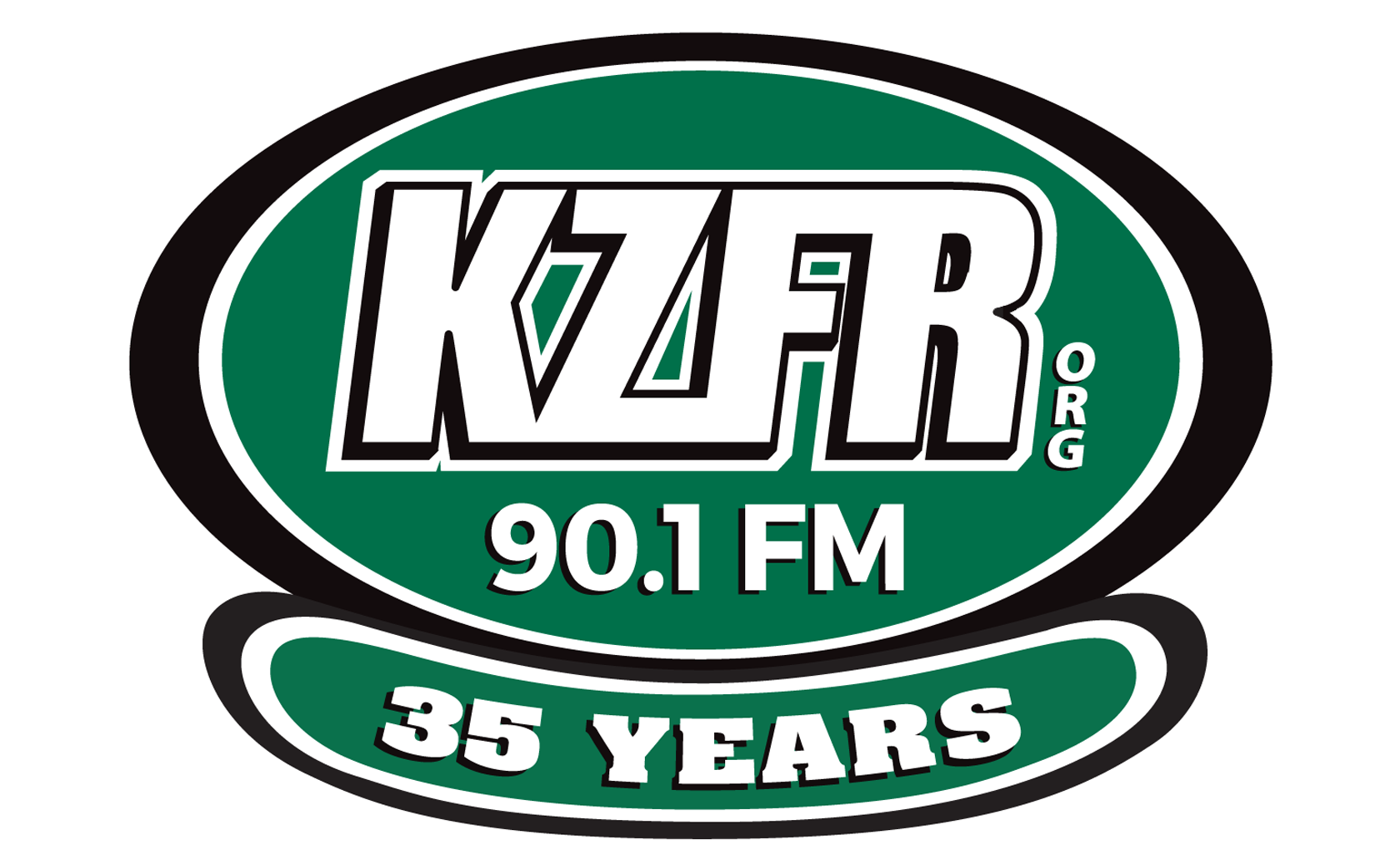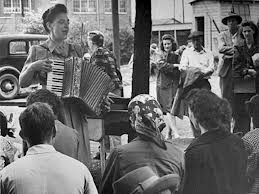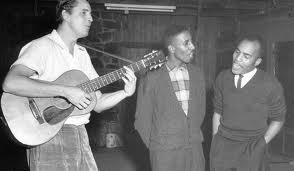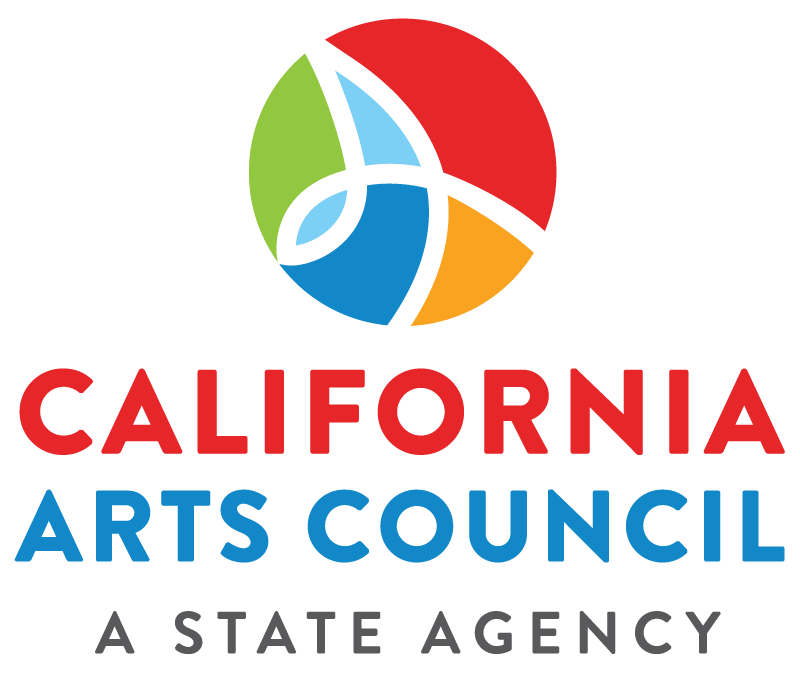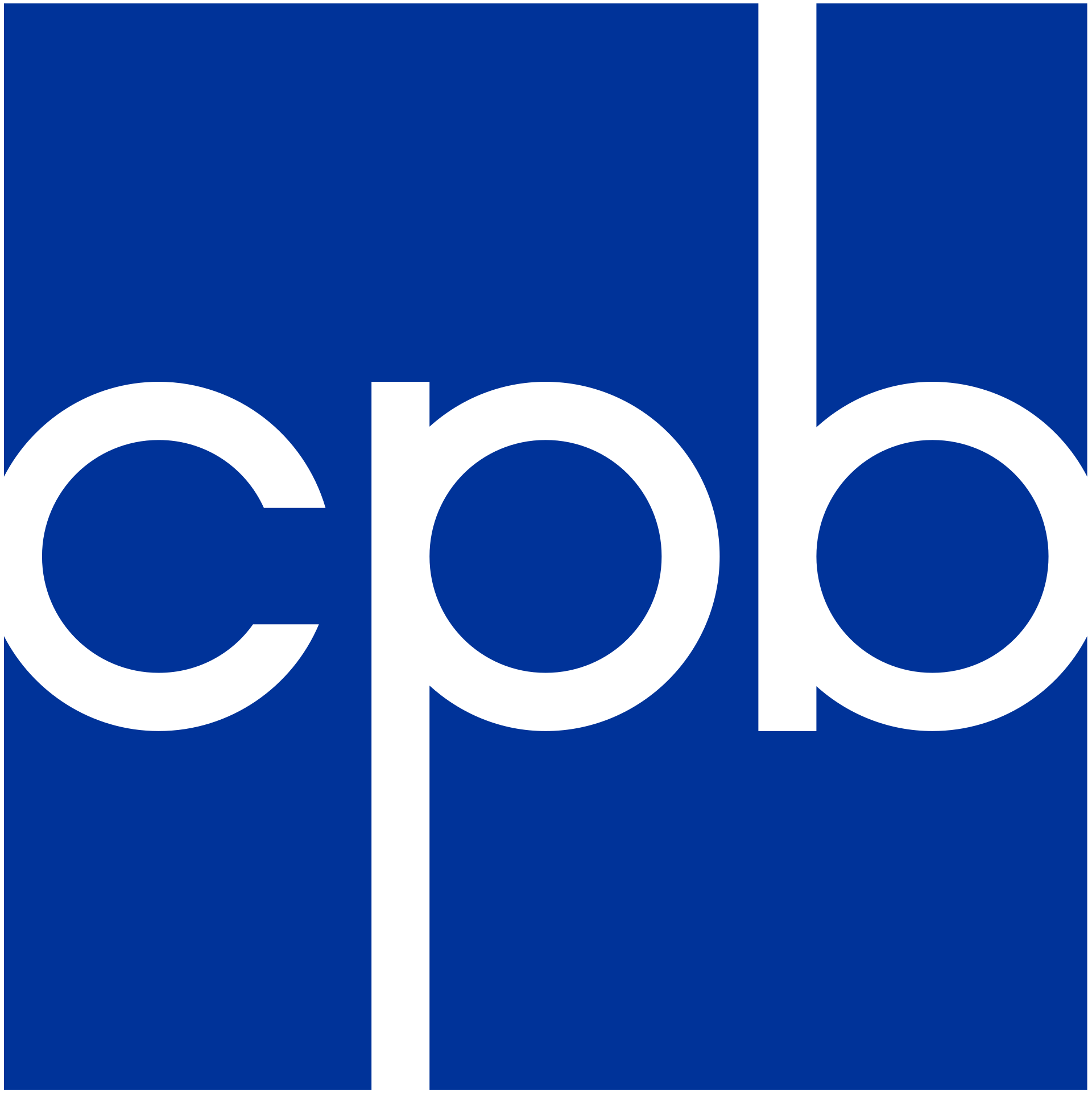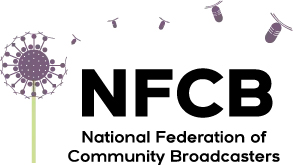Folklorist and musician Guy Carawan died a couple of weeks ago, and the news of his passing went unnoticed by the media for almost a week until someone realized his place in modern American history. It was Carawan (a white Californian) who introduced the anthemic “We Shall Overcome” to the civil rights movement. That song’s role in the movement has been well documented but its prior history, not so much.
The melody resembles the opening bars of an 18th century European hymn "Oh Sanctissima” - a hymn that Beethoven would later prominently reference. Another song published in America in 1794 titled “Prayer of the Sicilian Mariners” also shares a similar melody.
The lyrics seem to have been woven with threads from centuries of American oral traditions that emerge from the country’s warp and weft of struggle and hope. A 1909 United Mine Workers Journal states that, "Last year at a strike, we opened every meeting with a prayer, and singing that good old song 'We Will Overcome.’” The substitution of the singular "I" with the first person plural pronoun "We" marks a transition from a spiritual to a secular context. Gospel songs are about the individual; movement songs about the group. It may also be significant that the United Mine Workers in 1909 were an integrated union work force. But without knowing the lyrics and music it’s impossible to know if this quote refers to the song that became “We Shall Overcome.”
Pete Seeger originally thought that “We Shall Overcome” was inspired by a gospel song called “I'll Overcome Someday” which was copyrighted in 1901 by Rev. Charles Tindley. It shares similarity in title and lyrics but it’s in a different time signature and pentatonic scale, and uses a different rhyme scheme. Seeger learned the song from Zilphia Horton but he made some changes in the lyrics and added some verses before publishing it in 1947 as "We Will Overcome" in his People's Songs Bulletin. After its publication it began to show up on some pretty obscure recordings: Joe Glazer (“Labor’s Troubadour”), Laura Duncan and the Jewish Young Singers, and country singer “Texas” Bill Strength each released versions.
More recent research suggests that a more likely musical source was a gospel hymn entitled “If My Jesus Wills” which was composed during the early 1930s, published in 1942 and copyrighted in 1954 by an African American Baptist choir director named Louise Sharpshire who was a close friend of songwriter Rev. Thomas Dorsey, and civil rights activists Dr. Martin Luther King and Rev. Fred Shuttlesworth. Because of the lyrical and structural similarities Seeger later revised his thinking and suggested that Horton probably taught him a secular version (that included her own verse changes as well) of Sharpshire’s song.
Zilphia Horton learned the song in 1945 during a five-month strike by members of the Food and Tobacco Workers Union who were mostly female and African American. They sang the song at the end of each day of picketing. Horton was a union organizer and the musical director of The Highlander Folk School, a social justice leadership training center located in Tennessee. Once Horton took the song back to Highlander it was destined to be more than just another song.
Highlander was founded in 1932 to provide training for the labor movement throughout the south, and it came to play a critical role in the civil rights movement; members of the Student Nonviolent Coordinating Committee (SNCC), Martin Luther King, Jr., Rosa Parks, Ralph Abernathy and John Lewis all trained there. Dr. King heard Seeger perform the song at Highlander in 1957. Backlash against the school's involvement with civil rights led to multiple police raids and the school's closure by the state of Tennessee in 1961. It reorganized and reopened later becoming the Highlander Research and Education Center.
Guy Carawan had learned “We Will Overcome” from his friend Frank Hamilton, a future member of The Weavers. Hamilton had learned of it from Seeger’s publication. In the early 1950’s Carawan, Hamilton and Ramblin’ Jack Elliot traveled together to Highlander where they most likely heard Zilphia Horton perform her version. After Horton’s untimely death Carawan became the musical director at Highlander and his version of the song became a staple of training sessions, meetings and rallies. Seeger and activist (and future Governor of Georgia) Julian Bond both point to Carawan as the person most responsible for its eventual widespread use during the civil rights era. Carawan however always credited the idealistic enthusiasm of the center’s student activists (especially during the days of police raids and final shut-down) for developing what we all recognize today as “We Shall Overcome.” Carawan told NPR in 2013: “…at a certain point those young singers who knew a lot of a cappella styles, they said: ‘Lay that guitar down, boy. We can do this song better.’ And they put that sort of triplet to it and sang it a cappella with all those harmonies. It had a way of rendering it in a style that some very powerful young singers got behind and spread.”
"We Shall Overcome" was already a widespread musical manifesto by the time Joan Baez led the crowd of 300,000 in singing it at the Lincoln Memorial during the 1963 “March on Washington” and soon after that Dr. King began to incorporate the title and verses into his oratory. In 1965 President Lyndon Johnson referred to it as he introduced the new Voting Rights Act. But “a song is not a speech” wrote Seeger in 1965, “it is a work of art. It reflects new meanings as life shines new lights upon it. Thus this song undoubtedly has many meanings to many people….I’ve sung the song in twenty-five countries, before people of many races and religions, and I confess that for me the most important word is ‘We’…”
Movements require “we” so it’s no surprise that the United Farm Workers (UFW) soon adopted it for their unionizing efforts in California, or that eventually the song and its message of unrelenting hope found its way across the globe inspiring labor, social and political movements of all kinds. Marches and protests in the streets of Czechoslovakia, Northern Ireland, South Africa, Poland, and Bangladesh all have been propelled along by their own translations and adaptations ("....not be moved," "....persevere," "....take you down," etc.) with just the universal constant: “We.”
Writer’s credit for“We Shall Overcome” is shared by Seeger, Carawan, Horton, Hamilton, Tindley and Sharpshire but all the royalties from the commercial use of the song are dedicated to a fund administered by Highlander that supports social and cultural programs in the South. And this wasn’t the only song Carawan introduced to the civil rights movement and to a greater audience: As a folklorist working on Johns Island, off the South Carolina coast, a local Gullah woman heard him sing a traditional song, “Keep Your Hands on the Plow.” “We have another way of singing that song” she told him, “we sing, ‘"Keep Your Eye on the Prize."
Because he listened, learned and shared, much is owed to Guy Carawan and he’ll be featured on American Pastimes this week, along with some that followed in his footsteps.
PLAYLIST:
John Reischman & The Jaybirds “Ponies in the Forest” from Up In the Woods
Guy Carawan “Boll Weevil” from Boll Weevil
Guy Carawan “Sail Away Ladies” from Sail Away Ladies
Guy Carawan and Peggy Seeger “Cumberland Gap” from Cumberland Gap
Joel Rafael “El Bracero” from Baladista on inside recordings
Dan Berggren “Words Words Words” from For Pete's Sake on Wepecket
Peter Paul & Mary “Cactus in a Coffee Can” from Discovered
Laurie McClain “In My Heaven” from Live At the Purple Moon 1995 on Laurie McClain
Sue Massek “Come All You Coal Miners” from Songs from Precious Memories by Si Kahn
Si Kahn & The Looping Brothers “Aragon Mill” from Aragon Mill: The Bluegrass Sessions on Strictly Country Records
Anna Roberts-Gevalt & Elizabeth LaPrelle “Little Black Train” from Anna & Elizabeth on Free Dirt Records
Mike Higgins “Mary Don't You Weep” from For Pete's Sake on Wepecket
Craig Market and Thomm Lutz “WV Miner” from Nowhere to Hide
The Brothers Comatose “Church Street Blues” from Songs From The Stoop on The Brothers Comatose
Seldom Scene, The “Big Train to Memphis” from Long-Time on Smithsonian
Rock Ridge Bluegrass Band “Blue Eyed Boston Boy” from Drifter's Prayer on Rock Ridge Bluegrass Band
Rock Ridge Bluegrass Band “Tom Dooley” from Drifter's Prayer on Rock Ridge Bluegrass Band
Dan Weber “Oh Woody” from What I'm Lookin' For on Highway 142 Music
Guy Carawan “We Shall Overcome” from Classic Protest Songs from Smithsonian Folkways on Smithsonian Folkways Recordings
John McCutcheon “Casey Jones Union Scab” from Joe Hill's Last Will on Appalsongs
Nancy Blake, Gillian Welch, David Rawlings “As Long As the Grass Shall Grow reprise” from Look Again to the Wind: Johnny Cash's Bitter Tears Revisited
Bill Miller, Sam Bush, Dennis Crouch “Look Again to the Wind” from Look Again to the Wind: Johnny Cash's Bitter Tears Revisited
Joanne Rand “Fall of the Kiowa” from Still a Real World on Homefire Productions
Piper-Grey (David Piper, Earl Grey) “Motherless Child” from Piper-Grey Live @ the Onion! on Trough Records
Tillamook Burn (Lauren Sheehan & Zoe Carpenter) “Honey Babe Blues” from Tillamook Burn on LaurenSheehanMusic.com
MSG the Acoustic Blues Trio “We Shalll Overcome” from For Pete's Sake on Wepecket
Mavis Staples “Eyes on the Prize” from Eyes on the Prize
Kelly Bosworth “House of Gold” from Kelly Bosworth on Kelly Bosworth
Pharis and Jason Romero “Lonesome and I'm Going Back Home” from A Wanderer I'll Stay
